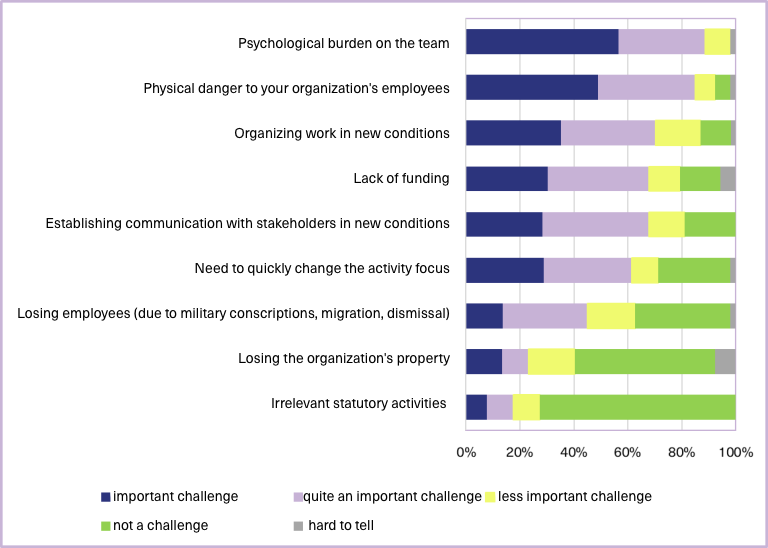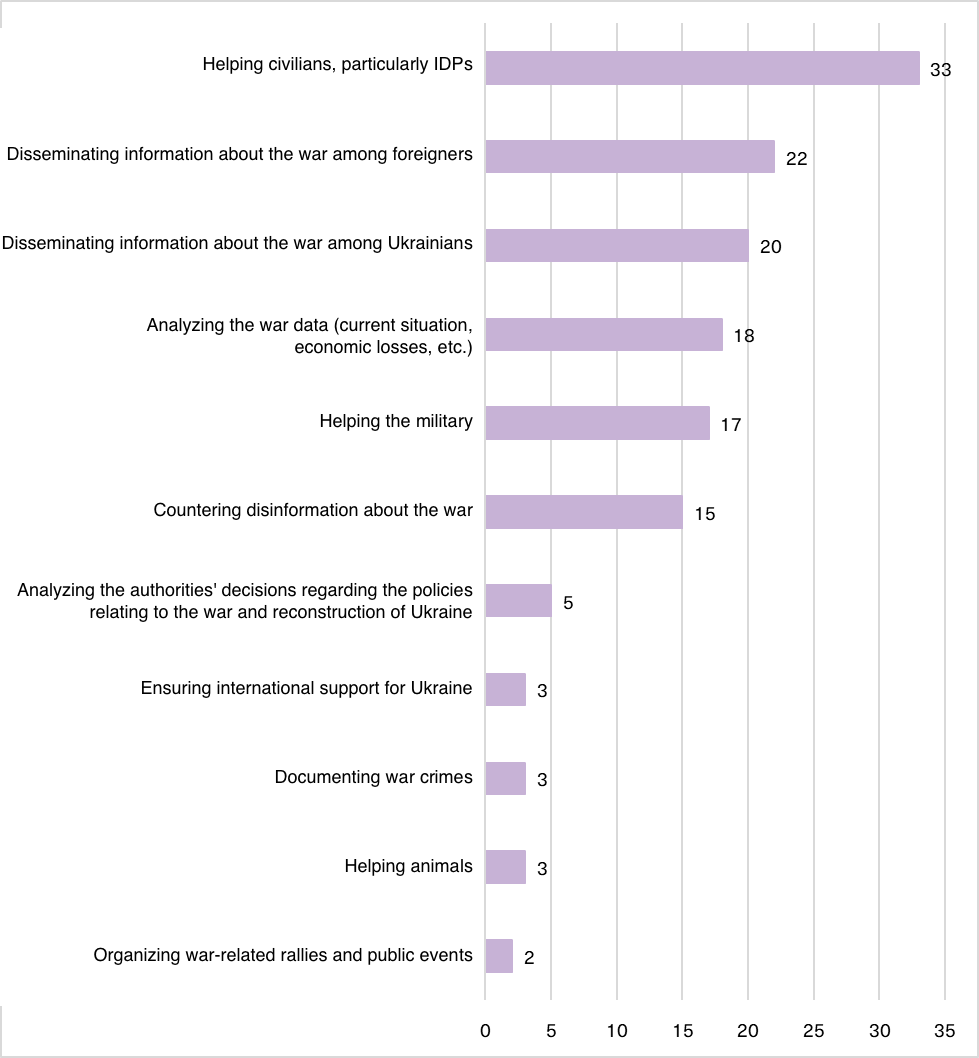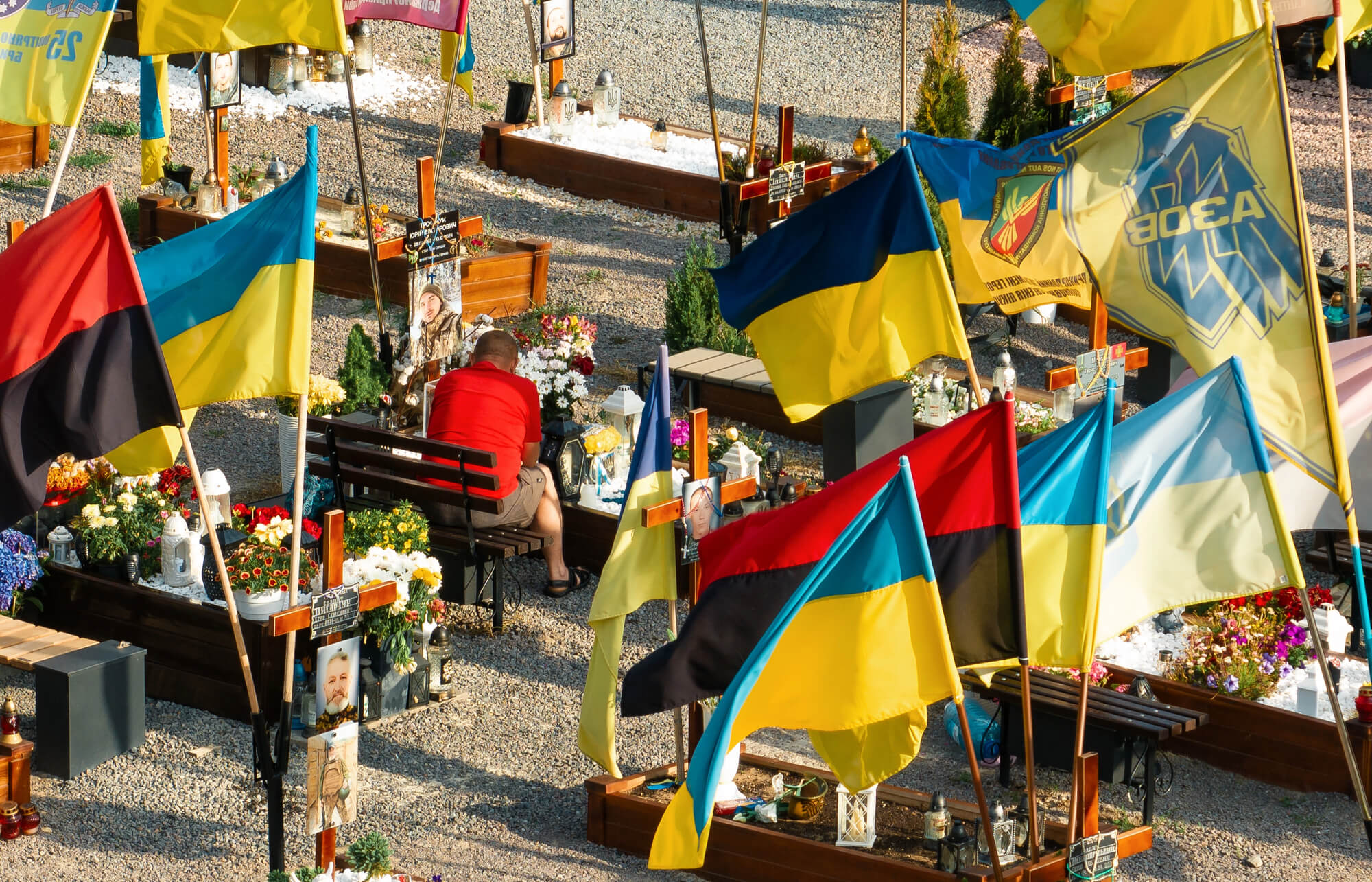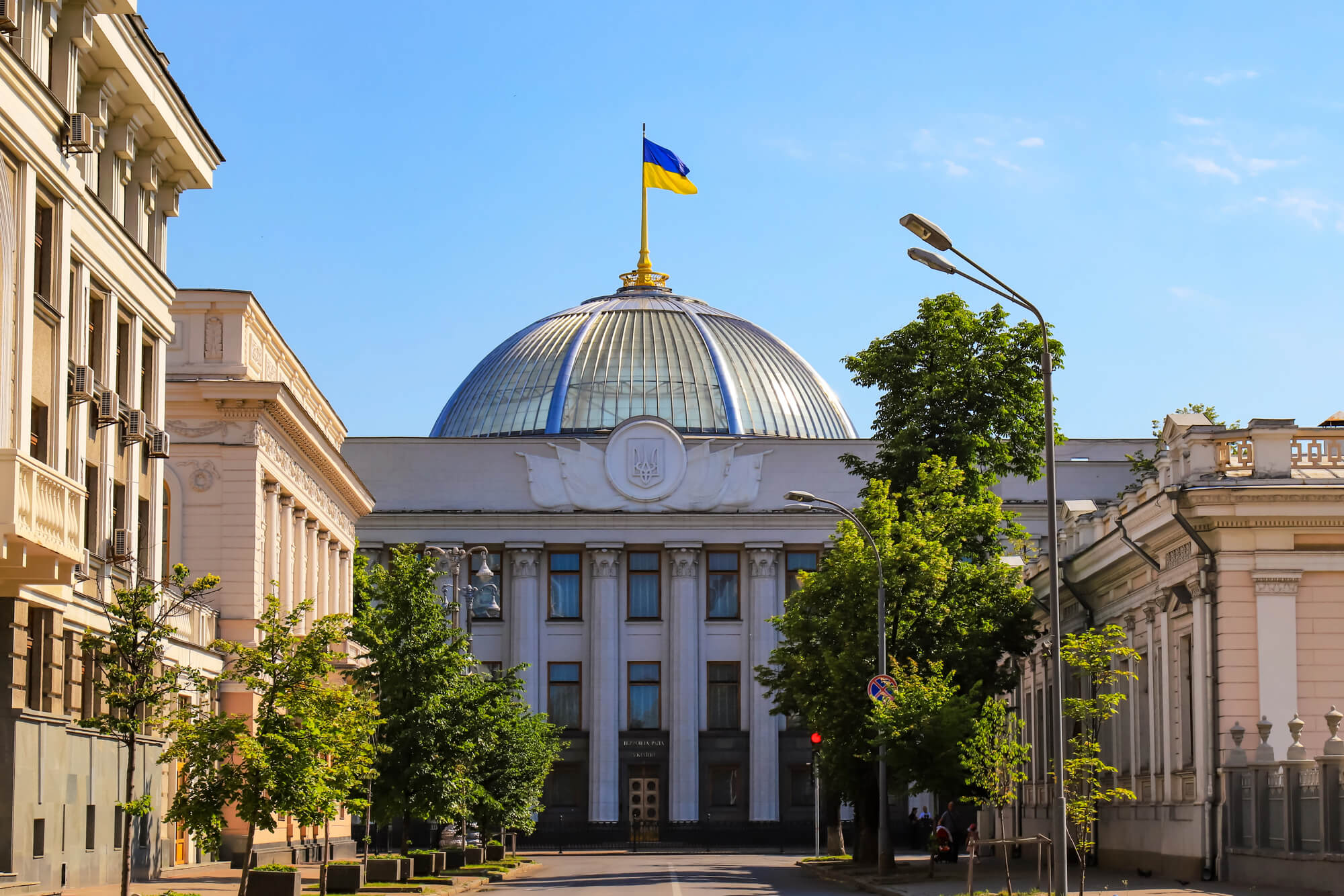When the COVID-19 pandemic had finally loosened its grip somewhat, and 15 million Ukrainians had received at least two vaccinations against COVID-19, the country faced a new challenge. On February 24, Russia launched a full-scale invasion of Ukraine’s territory. The role of non-governmental organizations grows in times of crisis because they typically warn the authorities against unjustifiably restricting people’s rights and freedoms, work with vulnerable groups, and monitor budgetary spending on helping affected areas. But are NGOs able to maintain their capacity during crises?
Methodology
In late 2021 and early 2022, together with the Belgian organization Promote Ukraine, VoxUkraine studied how Ukrainian and European non-governmental organizations adjusted their working activities during the pandemic. However, due to the beginning of a full-scale war, we postponed the presentation of the research results supplementing it with Ukrainian NGOs’ experience of organizing their work after February 24, 2022.
Our conclusions are based on information received from interviews with 25 non-profits, online surveys of 78 NGOs from Ukraine and the EU regarding their experiences in adapting to the pandemic (November – January 2022), and 56 Ukrainian NGOs about their experiences of adapting to wartime conditions (July 2022).
We used convenience sampling to form a sample of respondents for the interviews and the online survey. The method’s advantages are its convenience, low cost, and speed of recruiting the pool of respondents. It can be used for exploratory research (which is what we do), although more research is needed to convey the findings to the general NGO population.
The article was prepared based on the report, “Adapt or disappear: the impact of COVID-19-related restrictions on the communications activity of NGOs in Ukraine and Europe,” supplemented with a section about the full-scale war’s impact on Ukrainian NGOs.
This publication was produced with the support of the European Union and the International Renaissance Foundation within the framework of the EU4USociety project. Its contents are the sole responsibility of of the authors and do not necessarily reflect the views of the European Union and the International Renaissance Foundation
Challenges of the pandemic and full-scale war
During the COVID-19 pandemic, both Ukrainian and European non-governmental organizations faced three main challenges:
- Organizing the team’s remote work. Not all organizations or employees had experience in digital, with some relying on personal interaction and paper document flow before the pandemic. Besides technical support, the challenge during the quarantine was maintaining team spirit and finding tools to monitor employee efficiency.
- Seeking funding in conditions where donors have reduced or reviewed the funding areas. 79% of Ukrainian and 75% of EU respondents reported difficulties raising funds. The key reasons were a sharp change in the donors’ priorities regarding the pandemic and a reduction in businesses’ spending on charity.
- Communication with the audience. 84% of surveyed NGOs from Ukraine and 90% from Europe noted that communicating with the public had become more complicated, with 87% and 70% reporting that many usual tools had become impossible to use. 65% of Ukrainian and 60% of European NGOs reported difficulties interacting with the authorities.
According to Ukrainian NGOs, the main challenge during the full-scale war was the team’s emotional and physical safety. Approximately 90% of respondents said it was important or quite important (Figure 1).
Figure 1. What are the main challenges you have faced after February 24, 2022 (distribution of answers)
Online survey data, authors’ calculations. NB: Organizations could choose several answer options.
Organizing work in new conditions, NGO funding, and the need to quickly change the focus of activity or communication with stakeholders worried a smaller percentage of organizations, namely 60-70% of those surveyed.
That can be explained by the fact that NGOs somewhat utilized their pandemic-related experiences and learned to “deal” with such challenges (Figure 2).
Figure 2. Have the experiences gained during the pandemic come in handy? (distribution of answers)
Online survey data, authors’ calculations
About 90% of surveyed non-profits said that during the war, they used the experience of online work and communications gained during the pandemic. About 70% answered they were able to take advantage of their experience in crisis management and quick change of activity focus. Overall, the respondents’ answers showed that the pandemic could strengthen those organizations that had survived the strictest quarantine restrictions.
How has the full-scale war changed the work of Ukrainian NGOs?
Two of the 56 organizations that filled out the questionnaire regarding adapting to the full-scale war indicated suspending activities. Among the reasons were a lack of funding and irrelevant statutory activities. However, there might be many more such organizations since many of them probably never got to see our questionnaire.
To bring their activity in line with the times, many NGOs (46 or 85% of those maintaining activity) added war-related activities to their activity lists, with some (6 or 11%) completely switching to them. Most NGOs added to their activity lists assistance to civilians and military, as well as fighting russia on the information front.
Figure 3. If you have added war-related activities to your focus, list them (number of organizations)
Online survey data, authors’ calculations. NB: Organizations could choose areas of activity from the proposed list, add their own, and specify any activity areas.
Access to many sources of financing worsened, including money from businesses, individual benefactors, and crowdfunding companies (Figure 4). Those NGOs declaring an increase in funds from these sources mainly worked in the humanitarian sphere. After the start of the full-scale invasion, they supplemented their activity lists with military and civilian aid activities. In turn, grant-making institutions learned the lessons from the pandemic. They even increased their monetary support for NGOs (35% of organizations reported improved access to funding versus 26% saying it worsened) during the full-scale war.
Figure 4. How has access to different funding sources changed after February 24, 2022 (distribution of answers)
Online survey data, authors’ calculations
The new conditions affected the activity focus and financial support for NGOs also forced public initiatives to go online again. In early February, most NGOs were already drifting away from pandemic restrictions: about 90% had fully or partially resumed work in their offices. After February 24, 2022, the situation changed radically, with less than half of the interviewed NGO employees working in the office at least occasionally (Figure 5).
Figure 5. NGOs’ work format (distribution of answers)
Online survey data, authors’ calculations
Like the pandemic, the war spurred the growth of some NGOs. After February 24, the share of NGOs working at the international and national levels increased, while the share of non-profits working at the regional and local levels decreased (Figure 6). It is essential as it allows for the advocacy for the Ukrainian NGO agenda across a broader (particularly global) audience.
Figure 6. Has the geography of your organization changed? (distribution of answers)
Conclusion
Ukrainian NGOs’ experiences show that, although requiring organizations to work harder on themselves, the crisis eventually makes them stronger and more ready for new challenges. Fortunately, European NGOs did not face another crisis of a scale similar to that of the pandemic. Yet even there, the organizations that survived were most likely able to turn the “lemon” of 2020-2022 into “lemonade.”
Attention
The authors do not work for, consult to, own shares in or receive funding from any company or organization that would benefit from this article, and have no relevant affiliations












